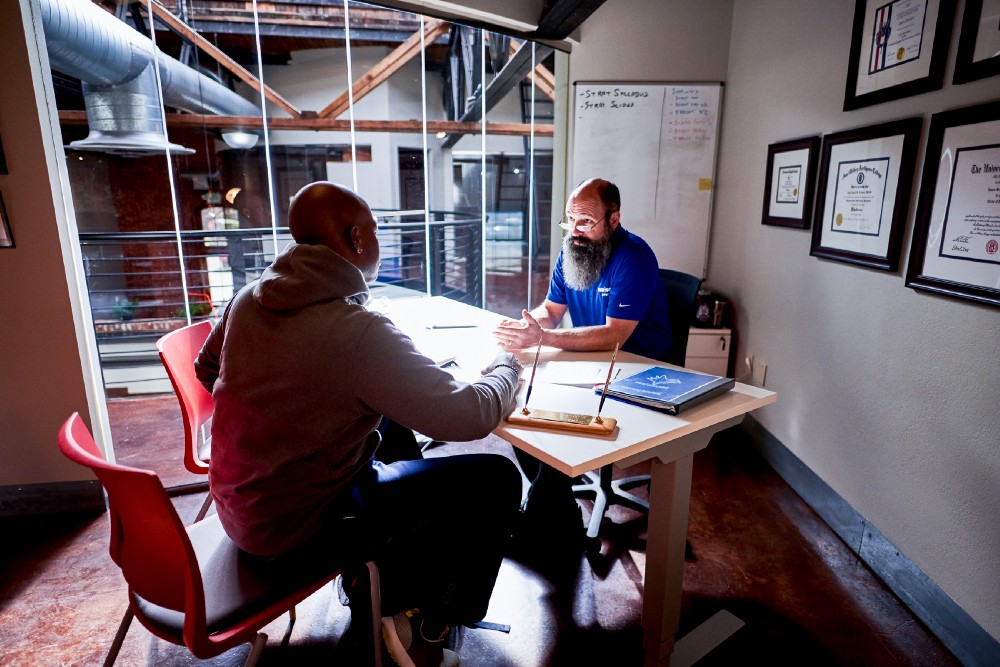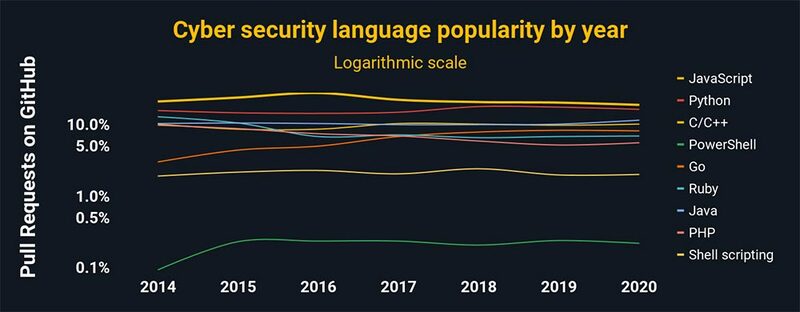Key takeaways:
- Cybersecurity is a growing field, with the potential for 6-figure salaries
- Bootcamps teach skills needed to enter the field quickly, but come with a price tag and rigorous learning pace
- Different bootcamps offer varying degrees of support during and post-completion – picking the right one is key
- Most bootcamps offer flexible learning options to fit into your schedule
- Bootcamps are generally considered worthwhile given potential salaries post-graduation
Before embarking on the path of becoming a cybersecurity analyst or engineer, you must ask yourself, “Is this worth it?” Will the upfront cost be worth the potential payoff?
It’s a hard question and one that requires a lot of research. In this piece, we’ll break down cybersecurity bootcamp costs, the expected return on investment, and potential salaries graduates could expect to help you decide if a bootcamp is right for you.
Demand For Cybersecurity Professionals
As more businesses and organizations establish an online presence, the demand for protection against cyber threats has exploded. And, with emerging artificial intelligence tools being used by bad actors to scale both the frequency and complexity of attacks, demand for those with cybersecurity skills will surely continue to increase.
This is backed up by the numbers as well – the cyber field is projected to grow 32% from 2021 – 2029. The largest concentrations of cybersecurity opportunities are in New York, Dallas, and Washington D.C, with slight variations in the expected salary* for Security Analysts in each location.
- National average Security Analyst salary = $93,519
- New York City Security Analyst salary = $136,846
- Washington, D.C. Security Analyst salary = $111,931
- Dallas Security Analyst salary = $120,187
For professionals looking for a growing field to develop careers in, Cybersecurity is an attractive option. But, to enter the field, hopefuls need the relevant skillset; bootcamps are a great way to acquire those skills quickly.

What Is A Cybersecurity Bootcamp?
Cybersecurity bootcamps are accelerated courses that teach students the necessary technical skills (and soft skills) needed to land a Cybersecurity job.
Bootcamps are short and intense – often completed in 12-14 weeks, as opposed to the 4 years required for a traditional university degree. They often are offered in full-time or part-time formats, as well as in-person or online.
Each bootcamp will have a specific concentration, but most aim to prepare students for multiple cybersecurity roles including cybersecurity analyst, compliance analyst, threat intel analyst, penetration tester or ethical hacker, cybersecurity engineer, system security administrator, information systems security manager, and cybersecurity consultant.
What To Consider When Choosing A Bootcamp
Cybersecurity bootcamps are run differently than a typical college course program, and their features vary based on the bootcamp.
Pre-Class Prep Work
Because they’re typically shorter and more rigorous than the typical college experience, your expected level of comfort with Cybersecurity before beginning the bootcamp can vary. Some bootcamps teach as if you have no experience at all, while others might assume a basic understanding of the topic. Others might expect you to complete pre-work before the bootcamp begins. For example, at Flatiron School, students must complete Prep Work before the first day of class to level-set their knowledge with others in their cohort.
This is something to consider when choosing a bootcamp. If you enter a cybersecurity bootcamp unprepared, it’s that much more likely you’ll have a bad experience, and attending will turn out not to be worth it.
When picking a bootcamp, research what’s expected of you beforehand.

Admission Requirements
While the requirements for attending a bootcamp vary, they’re there for a specific reason – to improve the odds that a student will be successful and make it to the end of the program. In addition to basic requirements such as age, logic and reasoning capabilities, and previous degree (ie, high school), admissions teams are looking for your commitment to learning.
There are a few ways bootcamps ensure that they only admit students passionate about learning: they can require certain prep work, require essays, or ask applicants to pass a cultural or technical exam as part of their admissions process.
Think long and hard about why you want to enter cyberspace. Consider your career and salary goals, too. When you have that vision in your head and keep your eyes on the prize, an admissions team will recognize that passion.
Career Services
Unlike a traditional college information technology or computer science program, many — though not all — bootcamps offer career services to help you land a job after you graduate.
Career services are an invaluable service that the best bootcamps offer. Many people pay thousands of dollars for a career coach alone — the best cybersecurity programs have that coaching built into their tuition. When you enroll in a bootcamp, you’re looking to start a new career, not just to learn cybersecurity skills. It’s only natural that you would be seeking some guidance finding a job after graduation.
The best career services will help you build your resume, perfect your portfolio, practice interviewing, and learn how to market yourself while staying true to your skills and values. Robust, comprehensive, personalized career services go a long way toward helping you leverage and showcase the skills you worked so hard to learn, and are a critical component of making your bootcamp experience worth it.
If a bootcamp you’re considering doesn’t offer career services, then find a bootcamp that does.
Program Cost
Tuition can vary and depends on the specific program, but quality cybersecurity bootcamps typically cost between $10k and $20k**.
Bootcamps that focus more on analytics and less on technical skills tend to be slightly cheaper than more technical bootcamps, which may prepare you to become a pen tester or network security engineer.
Further reading: How to Pay for a Coding Bootcamp
Skills Taught
The goal of a Cybersecurity bootcamp is to equip students with the fundamental skills needed to break into the industry. In a cybersecurity bootcamp, you will learn a mix of technical skills as well as practical soft skills to apply directly to your future career. They are designed to prepare students to identify, prevent, and resolve corporate data breaches and cybersecurity incidents with a focus on hands-on skills (as opposed to abstract theory).
Languages taught vary by bootcamp, but many teach you some combination of JavaScript, Golang, C/C++, and Python. We suggest reading up about which cybersecurity languages are used for what roles and selecting a bootcamp that teaches the skills aligned with your goals.

Format Options
Most cybersecurity bootcamps are offered in a variety of formats – full-time or part-time, in-person or 100% remote.
Can you commit to a full course load while you change careers, or will you need to continue working? Do you have access to a nearby campus, or would you prefer (or need) to study online? Do you have other time commitments that you need to consider while you further your education?
These are all important things to consider when choosing a bootcamp – be sure you’re selecting a format you can stick to for the duration of your program.
Advantages of Attending a Cybersecurity Bootcamp
There are a variety of advantages to attending a Cybersecurity bootcamp. Still, it primarily boils down to two simple things – speed and targeted learning that will get you to your goal of a career in cybersecurity faster.
Additional advantages of attending a bootcamp include:
- You’ll learn the skills employers are looking for now
- You’ll be held accountable for your work and progress
- Classes encourage collaboration and working with others
- Advisors and instructors to lean on when you’re stuck
- Career services (at the best bootcamps) to execute a smart job search
- You’ll graduate with a full portfolio to show employers
- Lots of hands-on experience means you’ll be ready to contribute on day one
- Many bootcamps focus on “learning how to learn,” so you’ll continue to improve as your career progresses
Disadvantages of Attending a Cybersecurity Bootcamp
But, like everything in life, there are trade-offs. Disadvantages may include:
- More expensive than teaching yourself
- Rigorous pace – if you’re not committed, you’ll fall behind
Further reading: Coding Bootcamps vs. College
So, Are Cybersecurity Bootcamps Worth It?
Whether a Cybersecurity Bootcamp is worth the investment depends on the individual person’s goals. For somebody just looking to dabble in Cyber, no, it likely wouldn’t be. But, if you want to launch a Cybersecurity career in months instead of years, then yes, it’s worth it.
Bootcamps aren’t easy, but you get out of them what you put into them. If you commit yourself to putting in the time and working hard, your experience will be well worth it — you’ll graduate a well-versed, knowledgeable, and industry-ready cybersecurity expert.
But don’t take our word for it, check out the stories of some of our Cybersecurity graduates who completed their programs and are now thriving in Cybersecurity:
- Tony Khawaja-Lopez: MMA Coach to Cybersecurity
- Qingsong Chen: Biology to Cybersecurity
- Usman Sikander: Mechanical Engineer to Cybersecurity
Ready to join them? Apply today to be one step closer to your next career.
Want to test the waters first, and see if Cybersecurity is right for you? Try out our free Cybersecurity Prep Work to try out the material – no strings attached.
*Salaries cited current as of October 2023




